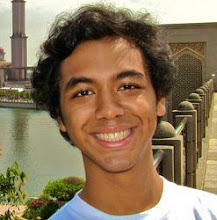Religious resurgence felt around the world also reverberates to the country. Since a few years ago, many ulamas became instant celebrities (and one also became an instant public enemy) preaching in high class venues to even higher class audience. The resurgence also reached the grassroots level. Such celebrulama are adored by the average citizen as the guiding light. Yet, this religious development isn't directed to the right place.
Due to increased awareness and interest in hijab from Indonesian women, many had decided to wear it. Unlike women in Turkey, Indonesian women are able to wear hijabs as they like, no matter where they are, because they're protected by Pancasila and the constitution. Indonesia has been open to many forms of faith for centuries, and this is also the reason why Islam grew so fast in the archipelago.
Due to increased awareness and interest in hijab from Indonesian women, many had decided to wear it. Unlike women in Turkey, Indonesian women are able to wear hijabs as they like, no matter where they are, because they're protected by Pancasila and the constitution. Indonesia has been open to many forms of faith for centuries, and this is also the reason why Islam grew so fast in the archipelago.
Negative connotations about hijabs in the past has changed, and now it is viewed as normal as t-shirts. It was suppressed during past regimes, but as reformation came, the freedom of religion is also recognized. Any women can choose to wear or not to wear hijabs, and if they choose to wear it, they are free to choose how they'll wear it. Hijabs and nonhijabs relationship hasn't been an issue in the society because we have respect for other people's choice.
Sadly, this positive changed is being exploited by politicians and religious zealunatics. Many institutions have made hijab-wearing compulsory, so have many regions throughout the country. Regents and many regional leaders have enacted bylaws forcing its citizens to comply to a certain set of dress code including hijab, labeled as "Islamic". Citizens who fail to do so are at risk of fine. Politicians support these laws as a way to woo religious votes in the local election, while the people itself, in a high of religiosity, easily approve anything called "religious", "moral", or "Islamic" without thinking.
Hijab bylaws are blatant deviations from the constitution of Indonesia. The most severe region is Aceh, where the so-called "Islamic" sharia is used instead of Pancasila. These bylaws deprive citizens of their rights to practice their religion according to what they believe. Faith is in a very private domain, and the govt cannot touch it, not even a little. No law can force people to comply to other people's belief.
To wear or not to wear the hijab, and how to wear it, is strictly a personal choice. Indonesian constitution has guaranteed this right from the very beginning. These bylaws cannot be justified by baseless arguments such as religious majority or "moral improvement". Pancasila and UUD 1945 is not based on any religion, but they do accommodate different religious views and give space for their development. It is then against the law to favor one faith over the other, or to declare one form of faith as "right" and the other as "wrong".
Many scholars, including many leading Muslim scholars, have condemned these bylaws and demanded the govt to evaluate them. They realize that this kind of law is not in any way Islamic since Islam itself doesn't approve of any kind of forcing faith upon others. The path of Islam is a path taken with faith of what someone believe in, not what someone is made to believe. If one chooses to not wear the hijab for real reasons, then she should take the path. No one can say that their path is the most direct way to heaven.
Sadly, the govt seems reluctant to strengthen its own foundation. The new Home Minister shrugged off demands to review the controversial bylaws amid mounting protests. The people who should guard the nation's Pancasila and Constitution are too afraid to lose votes that it prevents them to take real drastic actions.


No comments:
Post a Comment